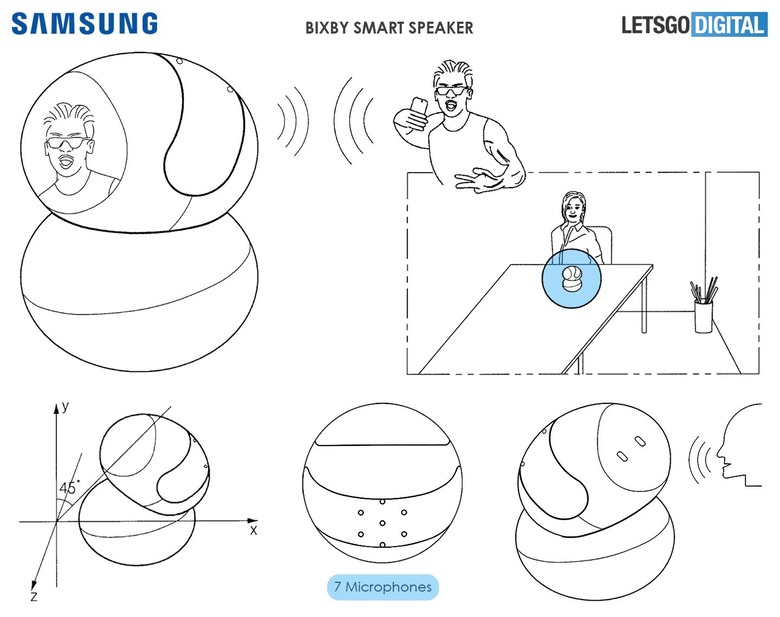Bixby smart speaker details surface
For as much talk as there's been about Samsung's Bixby smart speaker, the device is still shrouded in mystery. The veil is being lifted ever so slightly today, thanks to new patent filings with the World Intellectual Property Organization and the United States Patent and Trademark Office. These filings give us an idea of the capabilities we might expect from the smart speaker, and it looks like it could be a bit more advanced than similar devices from Samsung's competitors.
As unearthed by Let's Go Digital, these patent filings describe a device outfitted with seven microphones and a rotating and pivoting head that sports both a display and a camera. That the company is considering a smart speaker with a display lines up with Samsung CEO DJ Koh's statements from earlier this year, in which he said that he wants to focus on turning the Bixby smart speaker into a "premium" device.
Apparently, the head of the device is capable of rotating 360-degrees, and when paired with those seven microphones, it can determine where sound is coming from and turn to face it, assisting with voice recognition. It sounds like the camera will have some sort of facial recognition capabilities, but aside from using to recognize the source of sound, we don't really know what else it might be used for.

Users, of course, will be able to interact with the smart speaker using voice commands, but that display could add more options for interactions as well. Equipped with touch capabilities, the filings talk about Bixby using the display to surface text and photos or recognize gestures, and when paired with your phone or connected to the internet, it could also be used to make video calls in a vein similar to the Echo Show.
Samsung seems to be attempting to take the best parts of the speakers its competitors offer and roll it all into one device. Obviously, these patent filings don't guarantee we'll eventually see a smart speaker that boasts all these features, but Samsung is certainly trying to cover a lot of ground to compensate for its late launch. Hopefully the publication of these patents means we're close to finding out more, so stay tuned.
